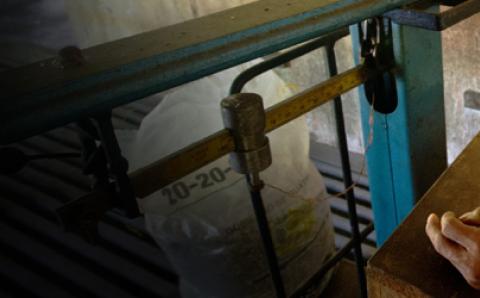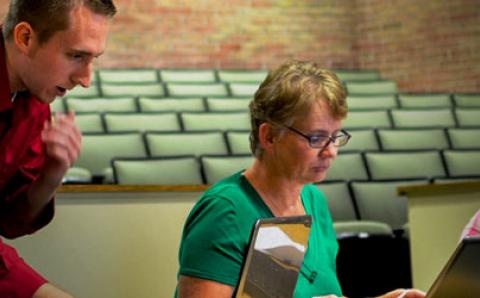Justice
Q Why are some justice issues considered moral issues but others are not?
A Issues such as abortion and capital punishment are often labeled moral issues, while issues such as poverty, human rights, and pollution are considered social issues. A historical or theoretical explanation would take more space than this column.
In practice, this distinction is problematic. It is used to elevate the importance of so-called moral issues, draw lines around what should be discussed in church, or convey that moral issues have simple answers while others are complex. In my experience, these distinctions often hinder Christian witness in the world. So-called moral issues are complex, but they are often discussed in such narrow, black-and-white terms that we miss good solutions. Other issues receive too little analysis through the lens of moral discernment, which considers right and wrong action. In Canada, for example, it took a campaign to establish care for creation and climate change as a moral issue so that more churches would discuss it.
The Bible does not make this distinction when it talks about how we should live. More verses deal with right and wrong in wealth distribution, for example, than with sexual purity. The Bible calls for moral action in all areas of life.
Not all issues are the same. I have found it more helpful to diagnose an issue in terms of what elements are personal choices about right and wrong, interpersonal choices, and societal choices. Every issue is a mix of these factors in our integrated world; unfortunately, none is simple.
—Kathy Vandergrift
Faith Formation
Q Is it important for our children’s and youth ministries to be intentionally Reformed? I hear loud voices proclaiming both yes and no as well as maybe.
A I understand our Reformed identity to have two central foundations. First is a way of reading Scripture that focuses on the unity of the story of God’s sovereign faithfulness from creation to new creation, a story that finds its coherence in the death and resurrection of Jesus Christ and includes us as we die and rise in him. We don’t answer questions by pasting in proof texts; we don’t favor one Testament over the other; we look at the entire narrative flow of God’s story and seek to discern how our lives today are embedded within it. I’m always amazed at how this approach opens up the Word for God’s people in rich, life-giving, fresh, and fruitful ways.
Second, “Reformedness” is an ethos, a communal way of being together. It honors the reality that because life is messy and complicated, simplistic answers almost always wound people in ungracious ways. Instead, we have room for diversity in our unity and nuance in our thinking. So we honor various viewpoints—but not every viewpoint—on matters like women in office, children and communion, and interpreting Genesis 1-3.
These two foundations are not billboards that we paste all over our children’s and youth ministries but rather embedded foundations that are liberatingly present in all that we are and do.
Yes, being Reformed matters.
—Syd Hielema
Calling
Q Nearly a third of young adults profess no religious affiliation, according to the latest Pew research. In my own congregation I look out and see more gray hairs than anything else. How do we interest young people in church?
A Many religious leaders are noting that while formal religious affiliation is on the decrease, a hunger for genuine spirituality is on the increase. This presents an opportunity. The key is to again allow churches to be out and among the communities we are a part of, seeking to make connections with people where they already are.
Many people of all ages are pursuing spirituality and seeking to grow their faith, but not through the usual channels. Consider this an invitation to get out and join them! Join a local book club, start a regular discussion group at a local coffee shop, or get together over a few pints. You’ll find that young people, on their own turf and on their own terms, are much more open to faith than you might expect—particularly a faith that is deep, rooted in tradition, and authentic.
Attempts to “contemporize” our worship gatherings will only go so far—in fact, this may not be the place to focus our energies at all. Be present. Get out there. Connections are waiting to be made.
—Bryan Berghoef
About the Authors
Syd Hielema serves as the director of the CRC's Connections II project. He worships at the Meadowlands Fellowship CRC in Ancaster, Ont.
Bryan Berghoef is an ordained CRC pastor and church planter. He lives in Holland, Mich., and works remotely supporting online contemplative learning and curating social media content for the Shalem Institute for Spiritual Formation in Washington, D.C.
Kathy Vandergrift teaches public ethics to university students and advocates for the rights of children.







